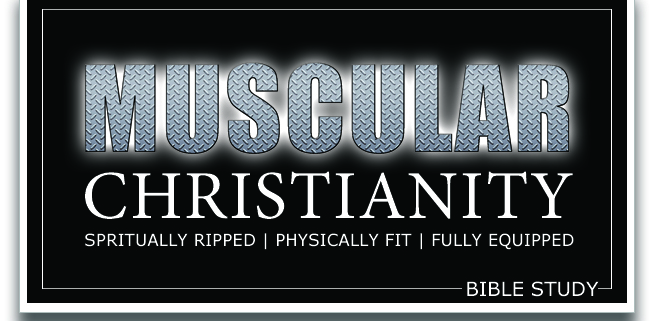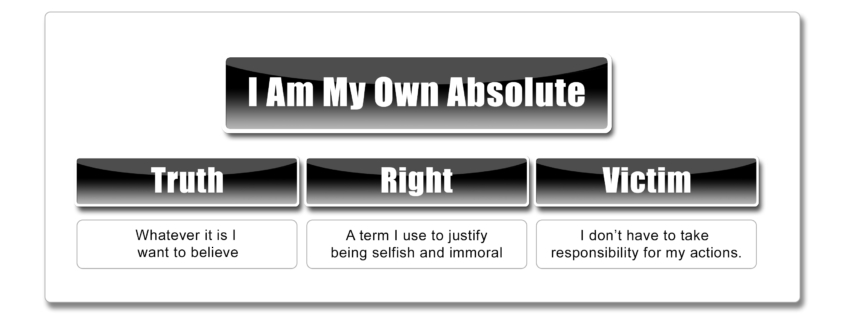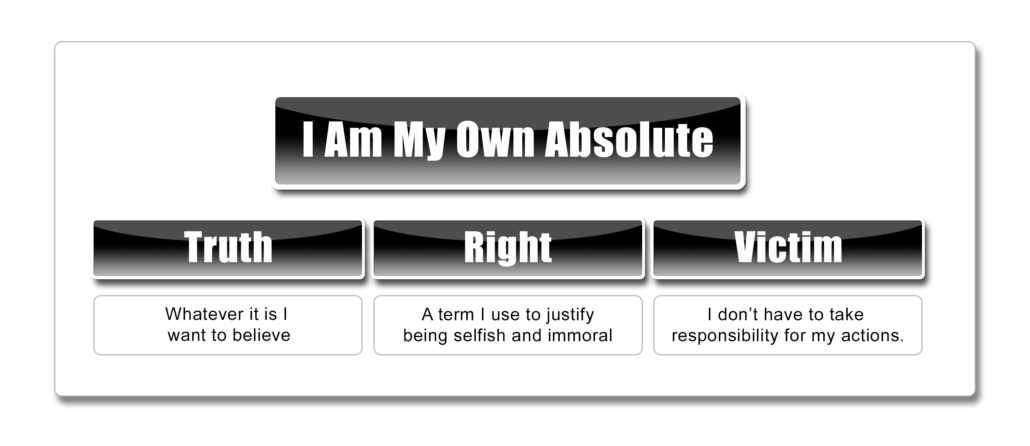Is Homosexuality Sinful | Part IV
Is Homosexuality sinful? There’s some who would insist that it isn’t based on a “trail” of reasons and logic that looks compelling at first, but is revealed as being less than credible once you really pop the hood on Scripture and examine the depth of what God has to say.
Welcome to Part IV!
Objection: The Bible promotes a variety of combinations when it comes to marriage including polygamy and other relationships where the woman is being subjugated and abused.
Overruled: God’s original design in Genesis, which is reiterated by Christ in the New Testament, makes it abundantly clear that God’s definition of marriage is one man and one woman. The distortions that man has attempted to assert as acceptable substitutes have never, and will never be, regarded by God as holy, let alone healthy.
Documentation Versus Endorsement (Polygamy)
The problem with this objection is that it assumes that because the Bible chronicles the way in which man fell short of God’s ideal, that his actions are therefore condoned by God. That isn’t the case. Those in the pro-homosexual camp list these, “unions” as being supposedly endorsed in God’s Word:
| Biblical Examples of Polygamy | ||
| Name | Wives | Reference |
| Jacob | Leah and Rachel | Gen 29:14-30 |
| Gideon | many wives | Judges 8:30 |
| David | many wives | 1 Chron 14:3 |
| Solomon | hundreds of wives | 1 Kings 11:3 |
| Joash | Two Wives | 2 Chron 24:3 |
| This not a comprehensive list. Rather it shows examples of polygamy among some of the more well known personalities in the Bible. | ||
There are a number of prominent personalities in Scripture who maintained more than one wife. But this wasn’t the original design as dictated by God. When Jesus was confronted by the Pharisees in Matthew 19 about the issue of divorce, they were looking for a way to trap him knowing that His response could potentially turn the public against Him in light of the way in which marriage was so commonly practiced and perceived. There were two popular interpretations of the Mosaic Law as documented in Deuteronomy 24:1-4 at that point. One, belonging to the school of Shammai, a well known Jewish scholar of the first century, stated that the phrase in Deuteronomy 24:1-4 declaring that a man could divorce his wife for, “something indecent” referred to adultery. The other school of thought belonging to Hillel, another accomplished Jewish theologian of the first century, believed that, “something indecent” could be something as trivial as a poorly prepared meal.
They were hoping Jesus would side with one of those two camps at which point they could either declare Jesus an opponent of the Law for agreeing with an extremely liberal interpretation of the passage in Deuteronomy, or an enemy of the people because He was threatening a liberty the masses were fond of. Jesus’ response was brilliant. Rather than address those who would attempt to interpret the Law, Jesus instead went to the very beginning, emphasizing how man was created in God’s image and how Holy Matrimony was initially established as one man and one woman united in a bond that was not to be altered or terminated by man (see Gen 2:24 Matt 19:4-6).
When pressed to comment on why Moses had published directions pertaining to divorce, Jesus replied that those directives had been given to Moses by God in order to regulate the damage that had been done to the institution of marriage as a result of the Israelites’ rebellious nature (see Matt 19:8). In that one exchange, Jesus defined any and all unions and / or practices that deviated from God’s original design as being sinful -the only exception being in the instance of adultery. At that point, a person could divorce their adulterous spouse without being condemned. But every other type of divorce along with every humanly concocted version of marriage, be it polygamy or a homosexual union, was defined as sinful and therefore not recognized by Heaven as legitimate, let alone healthy. Polygamy has been a common practice since the days of Genesis. But has been mentioned before, just because the Bible chronicles a particular practice – that doesn’t equate to a Biblical endorsement of that practice.
Polygamy, that being one husband with two or more wives, is still championed today by a great number of people who passionately cling to a flawed interpretation of God’s Word and will point to several well known Biblical personalities as being examples of God’s favorable disposition towards this practice. Mormons are notorious for engaging in polygamy. Their founder, Joseph Smith, had several, “plural” wives, the first of which was allegedly Fanny Alger. What makes this particular situation problematic is that Smith’s relationship with Alger appeared adulterous in light of there not having been a wedding ceremony which would allow people to recognize Smith’s relationship with Alger as being holy and legally legitimate. In addition, Smith declared Alger a “plural wife” only after the relationship came under scrutiny, hence the ease with which one could point to Smith’s spin on polygamy as being a convenient way to justify extramarital affairs (see sidebar). Still, Smith maintained his innocence and others would follow his example. In the, “Journal of Discourses,” a 26 volume collection of sermons by the early leaders of the Mormon church, Heber C. Kimball, one of the original apostles in the early Latter Day Saint Movement, said:
I have noticed that a man who has but one wife, and is inclined to that doctrine, soon begins to wither and dry up, while a man who goes into plurality [of wives] looks fresh, young, and sprightly. Why is this? Because God loves that man, and because he honors His work and word. 3
The problem with that statement is that it ignores Christ’s comments in Matthew 19 – one man, one woman for life. Some will argue that God’s design was intended as a starting point – that other combinations and variations would be considered just as holy once they became possible as a result of more people and more diversity in sexual appetites.
But that’s not an option in light of what Jesus said. By going back to the beginning, He was punctuating the fact that the only union that’s sanctioned in Heaven is the one that God created. Had God intended there to be an option for either divorce or polygamy to exist, He would’ve created, “spares” in order for that dynamic to exist.
The bottom line is that polygamy was introduced into the human equation by man and not by God. To insist that it’s a Divine institution on the same level as the marital relationship He put in place between Adam and Eve that was to serve as a template from that point on is to introduce a Scriptural dynamic that simply isn’t there.
The first time polygamy is mentioned in Scripture is in Genesis 4. Lamech, who would later have a son named Noah, was the first man recorded to have more than one wife. Lamech is documented to be an outrageously arrogant and prideful man that boldly proclaimed his independence from God. He was a descendent of Cain and his words and actions indicate his affinity for the same kind of rebellion that inspired Cain to sin against God and kill his own brother. For polygamy to be initiated by one so blatantly opposed to the lordship of his Heavenly Father demonstrates the self serving dynamic that characterizes polygamy in general. It is a deviation from God’s original design, one that was considered serious enough that it justified Christ Himself re-establishing God’s blueprint for one husband and one wife as the only marital relationship considered to be holy.
So, the bottom line is that God’s original design for marriage is the only, “marriage” deemed holy and legitimate. Any relationship that constitutes an edited version of God’s design for Holy Matrimony is neither holy let alone healthy.
A Rapist and His Victim
Deuteronomy 22:28-29 states that if a man rapes a woman, he is to pay the father of the victim a fine and then he is to marry the woman he has raped. On the surface ,this seems terribly unfair to the woman, especially if she has no interest in being bound to this man who has violated her. But there’s more to this directive than meets the eye and when you take a moment to study the text as well as the cultural dynamics being addressed, it makes sense. The key is to look at Deuteronomy 22:25. There is a distinction in the way the victim is being described in these two scenarios. In verse 25, you have a woman who is engaged to be married who is now being forced by a rapist to be intimate with him. The verbiage is very clear that she is being forcibly compelled to do what she does not want to do. It’s especially evident in the King James Version:
But if a man find a betrothed damsel in the field, and the man force her, and lie with her: then the man only that lay with her shall die. (Dt 22:25 [KJV])
In verses 28-29,however, the victim is described differently:
If a man find a damsel that is a virgin, which is not betrothed, and lay hold on her, and lie with her, and they be found; (Dt 22:28 [KJV])
There isn’t the same element of, “force” in the second scenario and that is significant because the difference in wording signifies that the woman in this case was not an unwilling participant. In verse 25, the man, “forces her and lies with her.” The word, “force” in the Hebrew is “chazaq,” means to prevail and overpower your adversary. In verse 28, he’s described as “laying hold” of the woman. “Laying hold,” in the Hebrew is, “taphas” and it means to “catch” as in to arrest or seize someone. The difference may appear to be nominal, in that there is an aggressive element in both instances, but it’s a distinction nevertheless and therefore is a situation like the one addressed in Exodus 22:16 where the woman has been placed in a compromising position, but not without her consent. “Gils Exposition of the Bible” lays this out in greater detail:
28If a man find a damsel that is a virgin, which is not betrothed, and lay hold on her, and lie with her, and they be found;
If a man find a damsel that is a virgin, which is not betrothed,…. That is, meets with one in a field, which is not espoused to a man; and the man is supposed to be an unmarried man, as appears by what follows:
and lay hold on her, and lie with her, she yielding to it, and so is not expressive of a rape, as Deuteronomy 22:25 where a different word from this is there used; which signifies taking strong hold of her, and ravishing her by force; yet this, though owing to his first violent seizure of her, and so different from what was obtained by enticing words, professions of love, and promises of marriage, and the like, as in Exodus 22:16 but not without her consent:
and they be found; in the field together, and in the fact; or however there are witnesses of it, or they themselves have confessed, it, and perhaps betrayed by her pregnancy. (Gills Exposition of the Entire Bible [http://www.biblestudytools.com/commentaries /gills-exposition-of-the-bible/deuteronomy-22-28.html])
You don’t see that difference in other translations in that the word, “seize” is used in verses 25 and 28-29 but once you pop the hood and look at the original Hebrew, the distinction is there and it’s that distinction which allows the directive to make more sense. As far as the way in which the pro-homosexual camp wants to use this verse to cast a shadow of cynicism over the Scriptures that denounce homosexuality and same sex marriage, their logic is again revealed as flawed in that this verse is not adding insult to injury by compelling a victim of a violent crime to marry the guilty party, rather it’s a verse that’s in place in order to discourage sex before marriage. Should two people insist on disobeying God’s law, this Scripture compels them to get married and do things correctly.
Proceed to the final installment, Part V, by clicking here…



 Jesus wasn’t a Socialist.
Jesus wasn’t a Socialist.
 A question on
A question on 
 The Marine Corps
The Marine Corps It’s a phenomenal program and several drumming icons including
It’s a phenomenal program and several drumming icons including 
 Western Flyer would tour all over the country. We were featured on national television and my engagement to my future bride was announced in Country Weekly magazine. But, while it’s tempting to think that a record deal translates to a career, that’s not always the case. Regardless of how many arenas you play, or how popular your songs are on the radio, the business side of it can sometimes override your aspirations and you wind up having to reinvent yourself in order to pay your bills.
Western Flyer would tour all over the country. We were featured on national television and my engagement to my future bride was announced in Country Weekly magazine. But, while it’s tempting to think that a record deal translates to a career, that’s not always the case. Regardless of how many arenas you play, or how popular your songs are on the radio, the business side of it can sometimes override your aspirations and you wind up having to reinvent yourself in order to pay your bills. The NHL performance that has since gone viral was the result of a conversation with the mother of one of my drum students who happened to work as part of the Nashville Predators who was able to contact me with the right people who then got me on the ice.
The NHL performance that has since gone viral was the result of a conversation with the mother of one of my drum students who happened to work as part of the Nashville Predators who was able to contact me with the right people who then got me on the ice.

